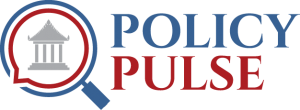The COVID-19 crisis has made the task of developing highly effective public policies and government programs even more important than ever. Timely data, evidence and analysis are critical in this situation. They can potentially enable policy makers and development partners to make better decisions and achieve better outcomes — on health security, social stability and inclusion, and economic resilience. The Royal Government of Cambodia has demonstrated an openness to evidence-informed approaches during the pandemic, a trend that the Ponlok Chomnes: Data and Dialogue for Development in Cambodia program aims to support.
Ponlok Chomnes — Khmer for ‘sprouting knowledge’ — is a three-year program (2019 – 2022) supported by the Australian Government and implemented by The Asia Foundation. The program aims to strengthen the capacity of knowledge sector institutions, including independent think tanks, to undertake quality research that informs public policy analysis and dialogue in Cambodia. Since the pandemic, Ponlok Chomnes has taken immediate action by pivoting current programing activities in response to this quickly evolving situation.
The Ponlok Chomnes program’s COVID-19 pivot directly supports Australia’s Partnerships for Recovery Strategy. This strategy was developed in light of the pandemic’s profound impacts on Australia’s neighbourhood — the Indo-Pacific region — in particular Pacific Island Countries, Timor-Leste and Southeast Asia. How these neighbouring countries emerge from the crisis will potentially influence Australia’s economic and strategic context for decades to come. In this context, Australia is committed to working hard with Cambodia to tackle the crisis together. Australia has already moved quickly to support Cambodia, including by pivoting existing development programs to respond to the health security, stability and inclusion, and economic impacts of COVID-19.
Specific Ponlok Chomnes initiatives in support of Cambodia’s COVID-19 recovery amid the pandemic include:
- Factual online information on Cambodia’s COVID-19 response
Through its existing mechanism, the Policy Pulse Initiative, the program has created a new landing page on Cambodia’s COVID-19 response, which provides factual information to the public and maps out various Cambodian government institutions’ efforts in addressing the COVID-19 outbreak. This new landing page can be accessed at www.policypulse.org/ponlok-chomnes/covid19/.
- Support for CDRI’s analysis of COVID-19’s impacts on human capital and recommendations to education and labour policymakers
The Cambodia Development Resource Institute (CDRI) is undertaking a research study on the “Forced Adoption of Educational Technology during the COVID-19 Pandemic: The Case of Higher Learning Institutions in a Developing Economy.” The research aims to understand 1) to what extent technical and vocational education institutes, universities and students are ready to shift to online teaching and learning, 2) the determinants of adoption of educational technologies and online learning, and 3) if there is a disparity in the adoption and readiness between affected cohorts who were living in different regions in Cambodia during the outbreak. The study results will help to support the evidence base on educational technologies and online learning to inform policymakers in the Ministry of Education, Youth and Sport (MoEYS) and the Ministry of Labor and Vocational Training (MLVT).
- Support for CKS’s analysis of COVID-19’s impacts on debt for poor households
The Center for Khmer Studies (CKS) is conducting research on “COVID-19, Debt and Economic Vulnerabilities for Low-Income Rural and Urban Households in Cambodia.” The research study aims to better understand the (1) strategies and mechanisms that microfinance institutions are taking to help borrowers navigate during and after the crisis (2) borrowers’ awareness of their rights and the presence and use of grievances mechanisms. The research will also capture social and economic impacts of COVID-19 on indebted borrowers by understanding the kind of coping strategies they have adopted so far. The findings will be shared with universities, Cambodia Microfinance Association (CMA), and other interested groups.
- Support for CPS’s tourism jobs survey and policy recommendations to the National Committee for Economic and Finance Policy
The Centre for Policy Studies (CPS) is conducting “A Survey on the Impacts of COVID-19 Pandemic Situation on Tourism Workers in Cambodia.” The objective of the study is to understand the real situation and challenges faced by the laid-off workers in the tourism sector and seek solutions that are practical for government and other partners to consider. The overarching research question is “How can laid-off workers in the tourism sector be supported, directly and indirectly?” The survey will be conducted with 500 laid-off workers in Phnom Penh, Siem Reap and the coastal region. The study’s results will contribute to providing policy inputs for National Committee for Economic and Finance Policy and other concerned ministries.
- Support for the Future Forum’s survey and policy briefs on microenterprises and vulnerable workers
Angkor Research Cambodia (ARC), in partnership with Future Forum (FF), is conducting a longitudinal study on “Economic impacts of COVID-19 on vulnerable workers” that seeks to identify the real impacts of COVID-19 upon the economic situation of citizens, businesses, and enterprises; prompted by the need for quality data to drive resultant policy in the region. This study will reach out to 1,000 wage workers, families with micro/small enterprises and farmers in Phnom Penh, Kampot, Siem Reap, Svay Rieng and Kampong Speu provinces. This data collection will take place at two-month intervals beginning in April 2020. Future Forum and Angkor will conduct policy interpretation and provide a series of policy briefs and commentaries using the collected data. The study aims to support the Royal Government of Cambodia, particularly the Ministry of Interior, in their risk-mitigation strategy around COVID-19 and to safeguard the significant economic gains the Kingdom has made in recent years. Findings from this series will also be incorporated into a broader regional survey on vulnerable workers in Southeast Asia.
For more information about the Factsheet on the Ponlok Chomnes Program’s COVID-19 Pivot, please click here.
In 2020, ASEAN launched the ASEAN Comprehensive Recovery Framework (ACRF) to respond to the pandemic across the region that focuses on five broad strategies, including 1) enhancing health systems, 2) strengthening human security, 3) maximizing the potential of the intra-ASEAN market and broader economic integration, 4) accelerating inclusive digital transformation, and 5) advancing towards a more sustainable and resilient future. For more information about the ACRF, please click here.
In December 2021, the Royal Government of Cambodia launched the Strategic Framework and Program for Cambodia’s Economic Recovery (2021-2023) to restore the economy in the immediate- and medium-term, improve its potential and resilience, and ensure more sustainable and inclusive development in the long run, after having implemented a number of support programs to sustain its economy. For more information about the Strategic Framework, please click here.

